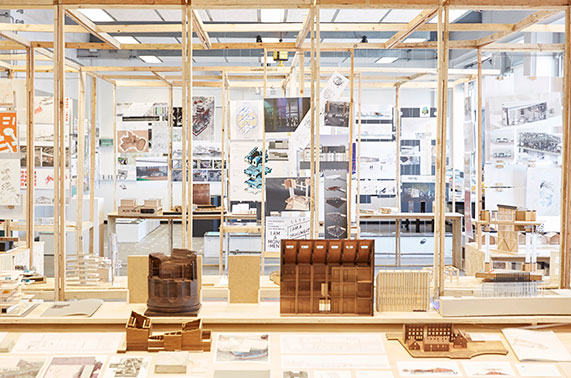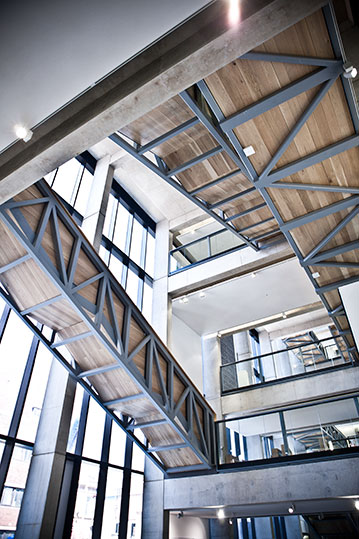Please briefly describe your current role and what you do.
I currently work full-time in a small architectural practice in Manchester, while carrying out my own design projects and studying for my final exams on the evenings and weekends. My role within the practice involves both concept and technical design, alongside attending site visits, client meetings, and supporting the project architects. My private projects allow for far greater client contact and design freedom.
How did you get this role?
Following the post-graduate degree show I was contacted by an associate from my current employer, inviting me to interview. The interview turned out to be a three hour informal chat, which resulted in me being offered a job.
Were any options/experiences in your degree helpful in getting your current role?
Absolutely. The unit I studied in - the MSA Projects unit - encouraged us to source and run our own ‘live projects’ – projects with local communities that ventured beyond the school of architecture. Experiencing the participative design process first hand, and coming up against a variety of scenarios from overpowering members trying to drive a project their way, to sourcing funding and publicity to researching legal matters, has put me in good stead for working in practice.
Did you do a placement year or work experience/internships/volunteering at MMU? Did these experiences help you find your current role?
I have had two full-time work placements to date. The route to qualifying as an architect is split into three parts. An undergraduate degree constitutes Part One, which is followed by a one year work placement. Following this, a further two years are spent on post-graduate study, which is called Part Two. Finally, a minimum of one further year is spent in practice, with coursework undertaken alongside this. Finally, an exam and professional interview take place (Part Three), before you are qualified.
Since graduating have you taken any additional qualifications to develop your career?
I am currently preparing for the Royal Institute of British Architects (RIBA) final Part Three exam, which if passed will allow me to register with the Architects Registration Board (ARB). This will enable me to practice independently using the title of architect.
Have you undertaken any Freelance work? Do you have plans to develop this option for work?
Yes to both! I have undertaken a wide range of design projects, from graphic design for an online drinks retailer (Master of Malt), to urban agricultural projects with Manchester City Council. I am currently in the process of developing my company website (www.citygrowing.org), and discussing further collaborations with both the city council, charity groups, and the Manchester School of Architecture. Focusing on freelance work and taking forwards the various urban agricultural projects in hand I find incredibly exciting. I intend to spend a lot more time developing these projects once my exams are out the way!
Where do you see your career going from here?
I hope to continue working with interesting people on exciting and challenging projects, with experience abroad a must. The wider range of projects, people and countries experienced the better. I would love to see CityGrowing expand and take on new projects - growing on brownfield sites is an area I am keen to explore further.
What advice/tips would you give to current School of Art students approaching graduation?
Get involved with any local community projects going, or perhaps run one yourself (e.g. exhibitions, music events, community growing sites). Participation is important - the more people you get involved and come into contact with the better your chances of finding employment/further opportunities.
Describe your experience of studying at Manchester School of Art
A full-on, rewarding, exhilarating and exhausting few years!
Your thoughts on Manchester as a place to be an art and design student
It's superb. There are a wealth of opportunities on offer - from taking part in small scale exhibitions, to getting involved with larger scale community projects, with funding support available both from the University and the City Council. The city itself plays host to an expansive range of cultural events.
Top three things about Manchester School of Art
1. Inspiring tutors 2. Top class workshops 3. City centre location
Top three things about Manchester
1. Cultural events - music scene, festivals, exhibitions, lectures 2. Opportunities for graduates - affordable studio spaces, collectives, employment 3. Fantastic falafel



